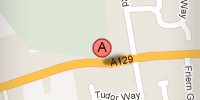224 Whitechapel Road, London, E1 1BJ
- Cosmetic Dentistry
-
Teeth Whitening
Porcelain Veneers, Inlays
White Fillings
Mouth Guards (sports) - Restorative Dentistry
-
Broken Teeth
Crowns
Bridges
Dentures
- Preventative Dentistry
-
Children
Dental Hygiene
Bad Breath & Gum Disease
Decay Detection
Mouth Cancer Screening - General Dentistry
-
Oral Surgery / Extractions
Root Canal
Amalgam Removals
![]() Excellent service and NHS too! A great team. I have recommended them to all my family.
Excellent service and NHS too! A great team. I have recommended them to all my family.
![]()
N Nessa
Treatments
General Dentistry » Oral Surgery / Extractions
Oral Surgery
Sometimes there may not be room in your mouth for your wisdom teeth and, as they start to come through, they may push against the teeth already there or they may start to come through at an angle. When this happens, you might feel some pain or discomfort.
An x-ray of your mouth will allow the dentist to make a judgement on whether or not to take your wisdom tooth out and how easy or difficult it might be.
Please speak to your dentist about your options.
Extraction
A simple extraction is a removal of a tooth without the need to cut into the gum. The most common reasons for tooth extraction is removing seriously damaged teeth because of tooth decay, a fractured or broken tooth or it may also be necessary to reduce dental crowding or the risk of infection and in the case of preparing for a denture.
After the tooth extraction procedure
Will I be in pain?
It is likely that there will be some discomfort and swelling both on the inside and outside of your mouth after extraction/surgery. This is usually worse for the first three days but it can take up to two weeks before all the soreness disappears.
You may need to control the pain with tablets. If these have not been prescribed, you can use pain killers you would normally use if you had a headache. Follow the dosage recommended on the packet. If antibiotics have been prescribed, please ensure you finish the course.
What about bleeding?
When you have any teeth removed you are left with a hole (tooth socket) in your jawbone. At first a blood clot forms, before healing over completely.
If bleeding occurs when you go home, apply pressure on the tooth socket with a clean, damp rolled piece of cotton/linen handkerchief. Try this for the first 10 to 20 minutes. If bleeding does not stop, please telephone the surgery. If the surgery is closed call the emergency dentist telephone number Emergency Appointment Keep biting on the handkerchief until you have spoken to or seen the dentist.
Can I eat or drink after treatment?
Try not to eat or drink if possible until after the numbness has worn off. It is advisable to eat on the opposite side of your mouth to the extraction site. For the first 12 hours (after the numbness has worn off) avoid hot drinks (which can break down the clot). Take only warm liquids or soft foods.
Can I smoke or drink alcohol?
It is advisable not to smoke or drink alcohol for at least 24 hours after the extraction. Smoking can prevent healing and cause bleeding to start.
What do I need to do at home?
When you have had a tooth out you must look after the area to speed healing and to reduce the risk of infection. It is important to keep the extraction site as clean as possible for the first few weeks after surgery. It might be difficult to clean your teeth around the sites of the extraction because it is sore.
The day after your extraction you can start using a warm salt water bath to help reduce the risk of infection. Dissolve a teaspoon of salt in a cup of warm water, hold a mouthful in your mouth for about 30 seconds so that the solution floods to the extraction site, then spit it out and continue in the same way until you have used the entire cup. You can do this after every meal or two to three times a day. Keep using the salt water until the extraction socket has healed. Do not use mouthwash as this may harm newly growing cells.
Will I have any problems?
It is uncommon to get an infection, particularly if good oral hygiene is maintained after surgery. If you are worried about infection, the signs would be a raised temperature, a nasty taste in the mouth, increased pain and severe swelling around the extraction site. If you experience any of these, it is important to contact us as soon as possible.








